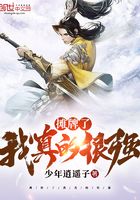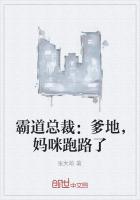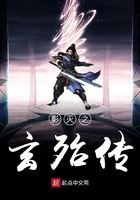As child of a Uyghur mother and a Han Chinese father, Nur Nawukaier finds himself torn between two identities.
By Wang Gang and Wang Jing
Nur Nawukaier is a man with two sides. He is Uyghur, an ethnic Muslim minority in China, and he is Han Chinese, China’s majority ethnicity. When people look at his face, they see deepset eyes, and a high, narrow nasal bridge, indicative of his Uyghurness. But when he speaks Mandarin Chinese, he sounds like a Han from Beijing, far from the Uyghur homeland of Xinjiang Uyghur Autonomous Region, in China’s extreme northwest. Fellow Uyghurs can tell that he has Han Chinese blood within a few seconds of meeting him. Nur is a little taller than them, a little thinner, and less masculine than other Uyghur men, plus, he wears glasses. Uyghur women tend to shy away, while Han Chinese women are intrigued by his delicate features.
Nur says he sometimes feels like a coin being tossed in the air, when it lands, only one side matters.
He rarely tells people that he is half Han Chinese. He was raised by his Uyghur mother; his Han Chinese father left them when Nur was very young.
When Nur joined the young protestors in Urumqi on July 5, he did so as a Uyghur, and he shouted and waved his fist in the air with the other Uyghurs. But while he marched, a sudden sense of confusion came over him; he felt disjoined from the group. He could not tell which part of him was stronger. His passion ebbed, and he decided to quit demonstrating with the group. Nur was home when the protests escalated into a bloody riot.
Identity Crisis
Nur knows only three things about his father: he is ethnically Han Chinese, he is an intellectual, and Nur’s mother hates him very much. Nur’s parents met in the early 1980s, when inter-marriage between Han Chinese and Uyghurs was rare. Nonetheless, they married, and a few years later, Nur was born.
During the decade following the founding of the People’s Republic of China in 1940, large numbers of Han Chinese migrated from the east to Xinjiang and settled in the area. During those years, it was not uncommon for people from different ethnic groups to marry. This changed when the catastrophic Cultural Revolution (1966 – 1976) effectively ended intermarriage and widened the rift between Han Chinese and a number of ethnic minority groups. Most Uyghurs have since preferred to marry someone from within their own ethnic group.
But while there were some, albeit infrequent, instances of intermarriage during the 1980s, for Nur’s generation, inter-ethnic marriages are intolerable. Nur sometimes asks his mother what she would do if he married a Han Chinese girl, to which she coldly replies, “If you marry a Han girl, I would give you up. No question.”
Growing up in a Han neighborhood near the People’s Square in Urumqi, Nur experienced Han culture, and knew the language, but his mother insisted that Nur go to a Uyghur school. Conflicts often erupted in the house between him and his mother over ethnic identity. There, Nur says, his mother banned the use of Mandarin Chinese because that is what Han people spoke (even though her Mandarin was quite good).
Even at the Uyghur School, his ethnic identity was questioned. During the early 1990s, Uyghurs were becoming increasingly concerned about ethnic identity, and Nur’s peers were skeptical about his.
As an adolescent, Nur became noticeably distant from his mother, and he chose to ignore anything about his mixed heritage. After he obtained the identity card that formally identified him as an “ethnic Uyghur,” he thought he would be able to cover-up his Han half; he wanted to be a real Uyghur man. He wore a moustache to appear more like a Uyghur, and was often seen looking in the mirror checking the curliness of his hair, or making sure it had a yellowish tint. He began to attend regular services at a nearby mosque in order to assert the Muslim side of his identity. But there was one thing he could not change: his myopia, which was very likely a legacy left by his Han Chinese father. Nearsightedness is rare among Uyghur young men.
Even as most people in his social circles were exclusively young Uyghurs, there was something deep within him that made him slightly uncomfortable. Perhaps it was his Han side that could not get used to the rough behavior of some of his Uyghur friends, the way they dressed, or their body odor, which he did not like. Nur did not reach puberty until later than the other Uyghur boys, and therefore, he had trouble attracting Uyghur girls.
Upon graduating from high school in 2001, Nur decided that he should leave Xinjiang and study somewhere else in China. He did not know what had prompted him to make this choice; probably it was part of his desire to escape the influence of his mother.
He was recruited by the Communication University of China in Beijing to study journalism. His identity as a member of an ethnic minority gave him a point curve advantage over Han Chinese students on the college entrance examination. The curve (anywhere between an additional 20 to 50 points) was part of the government’s preferential treatment policy to give minorities a boost.
The same year Nur entered university, there was a sharp decline in the employment rate for ethnic minority college graduates in the Xinjiang Uyghur Autonomous Region. Two years later the traditional scheme under which university graduates were guaranteed job assignments was scrapped. They were forced to find jobs without help, and many ethnic minorities in Xinjiang found themselves without work.
Before, government departments, State enterprises and institutions such as schools and hospitals employed Uyghur graduates, according to Li Xiaoxia, a research fellow from the Institute for Nationalities Studies at the Xinjiang Academy of Social Sciences. But, once the old employment apparatus was gone, Uyghur students were at the mercy of the job market. Because many of them knew little Chinese or English, plus the fact that many of them had majored in the humanities, rather than science or technology, they were further hindered by the poor employment situation.















